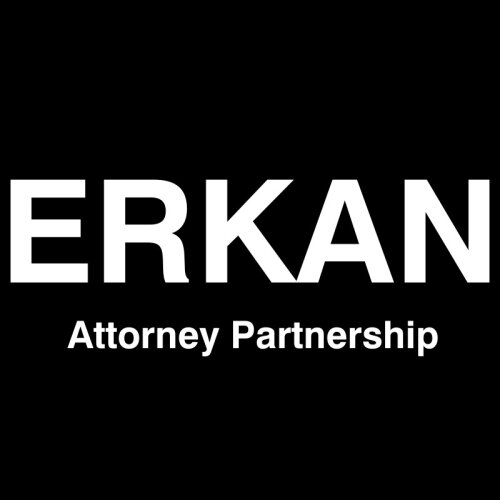Best Hiring & Firing Lawyers in Ankara
Share your needs with us, get contacted by law firms.
Free. Takes 2 min.
List of the best lawyers in Ankara, Turkey
About Hiring & Firing Law in Ankara, Turkey
Hiring & Firing law in Ankara, Turkey encompasses the regulations and procedures related to the employment relationship between employers and employees. It covers various aspects such as recruitment, employment contracts, termination, severance pay, and employee rights. Understanding the legal framework surrounding Hiring & Firing is crucial for both employers and employees to ensure compliance with the law and protect their rights.
Why You May Need a Lawyer
There are several situations where seeking legal advice from a lawyer specializing in Hiring & Firing law in Ankara, Turkey may be beneficial:
- If you are an employer and need assistance with drafting employment contracts, navigating labor regulations, or understanding your obligations towards your employees.
- If you are an employee and believe your rights have been violated, such as unfair dismissal, wrongful termination, or lack of proper severance pay.
- If you are involved in a legal dispute related to Hiring & Firing and require representation in court or during negotiations.
- If you need guidance on how to handle delicate employment matters, such as disciplinary action, performance evaluations, or restructuring.
Local Laws Overview
When it comes to Hiring & Firing in Ankara, Turkey, several key aspects of local laws are particularly relevant:
- Labor Law: The primary legislation governing employment relationships is the Turkish Labor Law. It regulates various aspects, including minimum wage, working hours, annual leave, notice periods, and termination procedures.
- Collective Bargaining: In Ankara, employers and employees may engage in collective bargaining agreements. These agreements define the terms and conditions of employment within a specific industry or enterprise and can impact Hiring & Firing practices.
- Discrimination Laws: It is important to be aware of the laws prohibiting discrimination in the workplace based on factors such as gender, race, religion, disability, or age. An understanding of these laws helps ensure fair treatment during Hiring & Firing processes.
Frequently Asked Questions
1. Can an employer terminate an employee without justifiable cause?
No, Turkish Labor Law requires employers to have justifiable cause to terminate an employee. If an employer terminates an employee without proper cause, it may be considered unfair dismissal, and the employee may be entitled to compensation or reinstatement.
2. How much notice is an employer required to provide before termination?
The notice period varies depending on the length of continuous service the employee has with the employer. As a general guideline, the notice period ranges from two weeks to eight weeks. However, specific circumstances may affect this requirement.
3. Are employers required to pay severance to terminated employees?
Yes, employers are generally required to pay severance to terminated employees. The amount of severance pay is determined based on the employee's length of service and salary. There are specific rules and formulas outlined in the Turkish Labor Law to calculate the severance payment.
4. Can an employer dismiss a pregnant employee?
No, it is illegal for an employer to terminate an employee solely based on their pregnancy. Pregnant employees are protected by laws prohibiting discrimination in the workplace. However, there may be legitimate grounds for termination unrelated to the pregnancy.
5. What steps can an employee take if they believe they were wrongfully terminated?
If an employee believes they were wrongfully terminated, they can file a complaint with the labor court within two months of the termination date. It is advisable to seek legal advice and gather all relevant documentation to support the claim.
Additional Resources
For further information and assistance regarding Hiring & Firing in Ankara, Turkey, you may find the following resources helpful:
- Ministry of Family, Labor, and Social Services: The ministry's website provides information on labor laws, regulations, and employee rights.
- Chamber of Commerce and Industry: Local chambers can often provide guidance and support for employers in understanding labor laws and best practices.
- Legal Aid Services: If you are unable to afford legal representation, there may be legal aid services available that can provide free or low-cost assistance.
Next Steps
If you require legal assistance or advice related to Hiring & Firing in Ankara, Turkey, it is recommended to consult with a qualified lawyer specializing in employment law. They can assess your specific situation, provide legal guidance, and ensure your rights are protected throughout the process.
Lawzana helps you find the best lawyers and law firms in Ankara through a curated and pre-screened list of qualified legal professionals. Our platform offers rankings and detailed profiles of attorneys and law firms, allowing you to compare based on practice areas, including Hiring & Firing, experience, and client feedback.
Each profile includes a description of the firm's areas of practice, client reviews, team members and partners, year of establishment, spoken languages, office locations, contact information, social media presence, and any published articles or resources. Most firms on our platform speak English and are experienced in both local and international legal matters.
Get a quote from top-rated law firms in Ankara, Turkey — quickly, securely, and without unnecessary hassle.
Disclaimer:
The information provided on this page is for general informational purposes only and does not constitute legal advice. While we strive to ensure the accuracy and relevance of the content, legal information may change over time, and interpretations of the law can vary. You should always consult with a qualified legal professional for advice specific to your situation.
We disclaim all liability for actions taken or not taken based on the content of this page. If you believe any information is incorrect or outdated, please contact us, and we will review and update it where appropriate.














